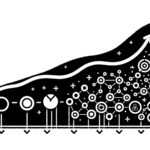
In this article, I share why I built a product management department and continue nurture talent within it.
Every organization in today’s time and age need a strong product management department and why you should never stop investing in your product managers. Read about the definition of product management in another article titled “Product Management Defined by a 9-Figure Company CEO”. This article you are reading assumes you know what it is and what it does.
At the end of this article you will have a good idea of why product management is more important than your R&D and where to get started in building a product management function in your company.
Let’s get started:
Why Product Management is So Relevant Today?
We are living in the age of product driven organizations. Product driven organizations grow, gain customers and retain customers by constantly bringing innovative products to market. I explained this in detail in the video below.
There are 4 reasons why Product Management is important in this time and age:
1- We’re in the Age of Product: The era of growing companies purely through increased efficiencies is over. Now, it’s all about product-driven growth. Companies that can diversify their offerings—like Amazon, Apple, Google, and Microsoft—have paved the way. I once believed staying focused on my product segment was key, but it’s no longer just about focusing on one segment. It’s about creating an ecosystem around your products to retain customers. It’s not companies that compete against each other, but their ecosystems.
Lacking product management in today’s organizations is akin to building houses without architects. Product Managers serve as the architects for building these ‘houses.’ Leave the design of your house to contractors and engineers alone, and see the outcome.
Example: Consider Apple’s growth strategy, which involves introducing new product lines to its existing customer base: the Apple Watch, AirPods, and now the Apple Vision Pro.



2 – Product Management is the Secret Sauce: Access to great R&D talents such an even playfield in this time an age. You can find good engineers in USA, in India, in Europe, in China. It’s a pretty level access. You can have as good as engineers as Apple has with almost any budget. Product Managers are the people making a difference on the success of the product lines. Let me rephrase, having good engineers are absolutely necessary and a table stakes for having a successful product company but it’s not enough. We need STRONG product managers to be successful. Product Managers are the secret sauce today.
Products managers are the one who find customer’s pain and invent features and products to address those. I explained these two roles of product managers thoroughly in the below articles:
1- Product Managers be the Customer Pain-Finder!
2- How Product Managers Invent Product and Features!
Engineers are the one who are given the requirement to develop the technology. There is a distinct difference between product management and engineers.
Example: Sam Altman at OpenAi was ultimately a product manager. He did what product managers at Google and Apple didn’t do. Created a Ai chatbot as a product and launched this. Apple and Google both had the right R&D capability to make a better OpenAi. They just failed the product management game to bring such product to market.

3- Product Managers are like Parents to the Products: Launching a product line is akin to bringing a child into this world; it’s not just about the birth, but ensuring its health and success for as long as you’re responsible. Product managers are akin to parents. Their work isn’t done upon the product’s launch; that’s when it truly begins. It requires individuals who care for the product daily as if it were their own child, engaging with customers regularly to identify issues and iterating quickly to resolve them. They dream about the product’s future, envisioning its evolution over the next 3-5 years, and planning how it ages, transforming those visions into features and roadmap iterations. Lacking a product manager for any type of product in your organization is akin to leaving a child orphaned; they might grow up, but their path is left to chance.
In organizations where product managers are present, ownership begins from the day the product is launched. If the product underperforms, product managers actively collaborate with the R&D team to address and fix the issues, significantly impacting the outcome.
Example: An example of this can often be seen in founder-driven organizations. When such companies are sold, the acquirer may struggle to continue the product’s success as the founders did, essentially because the product has lost its ‘parents.’ Smart acquirers recognize this and make efforts to retain and motivate the original product managers to stay and help the product continue to thrive under new ownership.
In my organization, we are never short of great product ideas and potential new business lines. However, the lack of a suitable product manager—or ‘parent’—for these new ventures often means we choose not to pursue them.
4- Product Managers are invaluable people within your organization: Level 4 product managers often possess the qualities that make great CEOs due to their diverse role. They are creative, adept at problem-solving, understand the customers, marketing, and sales, and have a commercial mindset. Their commitment to resolving issues and leading tasks propels the organization forward. Working with such self-motivated individuals who drive initiatives to completion is truly remarkable. These individuals have the potential to ascend within the organization, manage business units and P&Ls, run subsidiaries, and even become CEOs. Consider Sundar Pichai, the CEO of Google, who started as a product manager.
Establishing a functional product management department lays the foundation for a bench of future leaders within your product organization. It’s about nurturing an ecosystem where new talent is continuously introduced, and level 4 managers are advanced within the organization. If you manage to build such a department, your competition will indeed have reason to worry.
Hopefully, this convinces you of WHY product management is essential for the success of any organization. In a future article, I will delve into where to start and how to build a successful product management department.
Enough said!
Amir
P.S. If you are not a ProductCEO subscriber, what are you waiting for?


